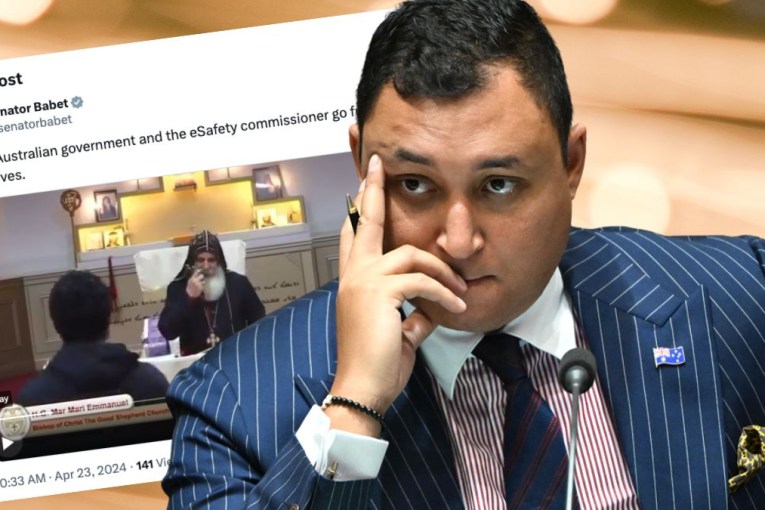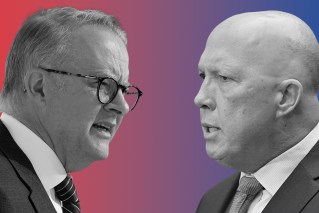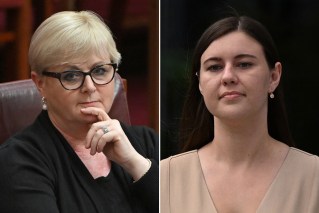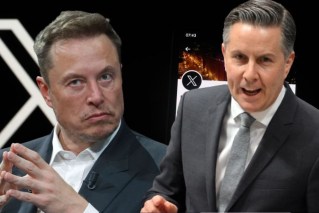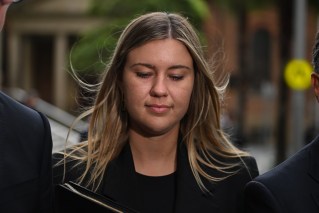Tony Abbott’s election decision: should he go early?

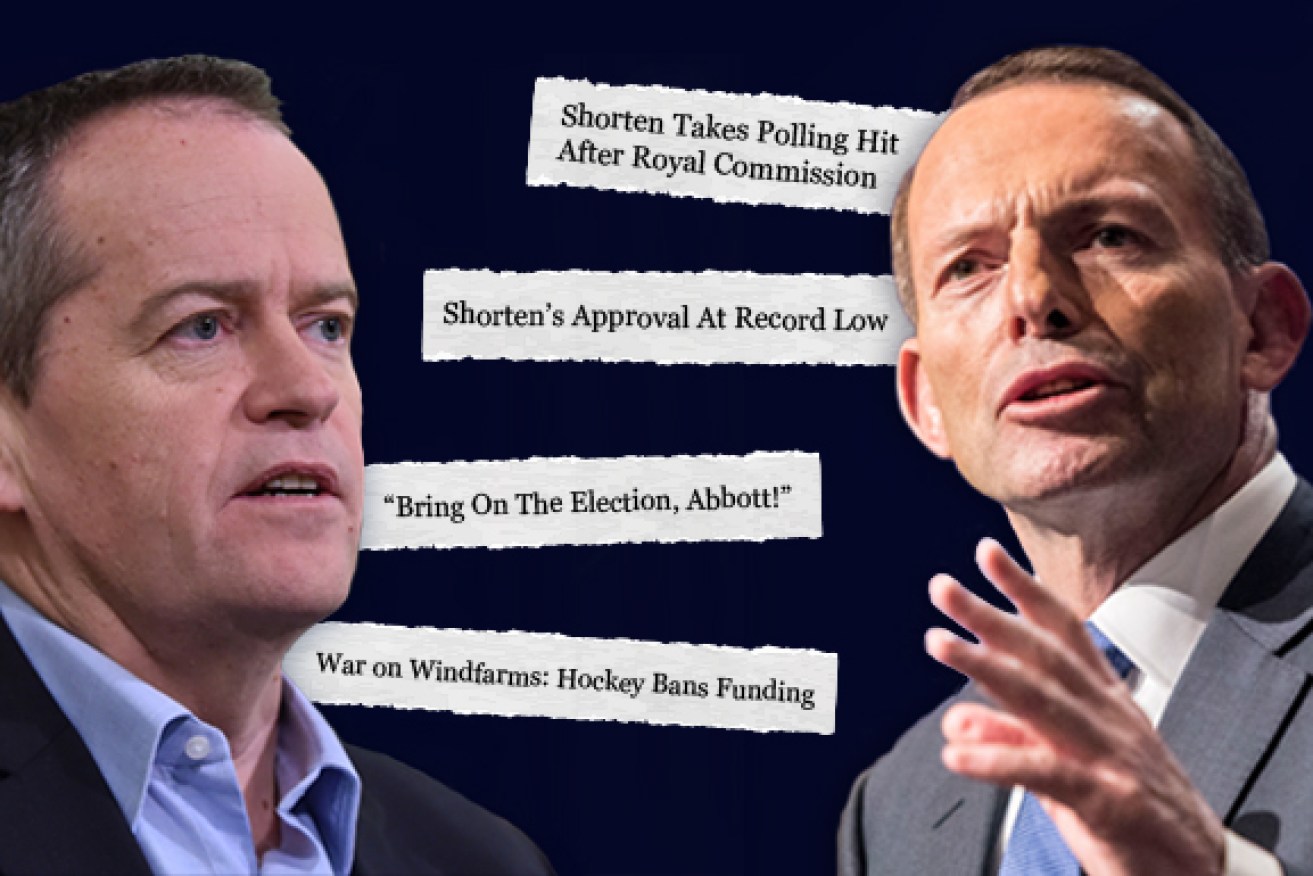
Tony Abbott is being coy on the issue of whether he will call an early election, but despite his claims that the media is “hyperventilating” on the issue the PM is undoubtedly weighing up the option of seeking a fresh mandate from voters.
The power to set the election date is the most potent political weapon available to a government leader, and Mr Abbott’s trigger finger must be getting itchy now that the Labor Opposition is starting to suffer in the opinion polls.
To counter the PM’s enthusiasm, hard-headed advisers will have presented Mr Abbott with a list of early election pros and cons.
• PM’s deep well of hostility to clean energy
• Days of easy home loans are over … thankfully
Here we look at arguments for and against an early poll, and offer the PM a view on whether to go soon or wait. First, the reasons to go to the polls early.

Ricky Muir of the Motoring Enthusiasts Party.
Shake up the Senate
There are a couple of options for calling an early election, but a double dissolution election provides the only opportunity to rid the Senate of the micro party parliamentarians who were elected with minuscule votes at the 2013 election.
A ‘normal’ election, in which all House of Representatives members plus half the Senate stand for re-election, can’t be called before 1 July, 2016. A double dissolution (also known as a ‘DD’) election requires all Senators to stand for re-election but also halves the amount of votes needed by a Senator to be successful. To prevent even more micro party Senators from gaming the electoral system, the voting rules would need to be changed before an early double dissolution election was held.
Avoid a nasty pre-election budget
Having reversed most of the hard economic decisions from its first budget to placate voters in its second, the Government needs to deliver a more economically responsible budget in 2016. Going to an early election postpones the hard decisions that need to be taken in that budget until after polling day, so that voters can’t retaliate at the ballot box.
Make the most of anti-union sentiment
The PM already has a DD election trigger, the twice-refused bill to abolish the Clean Energy Finance Corporation, but it is sensible to have more than one trigger on which to campaign for election. The Government has two proposed laws, designed to curb union power, which have already been rejected by the Senate and will be reintroduced when Parliament resumes in August.
If the Senate again rejects these bills, the PM has the opportunity to run an election campaign that exploits any anti-union sentiment aggravated by the royal commission into union governance and corruption, and discredit Labor leader Bill Shorten and the ALP by association.

Bill Shorten leaves the Royal Commission into unions.
Labor’s disarray
The federal opposition was riding high in the opinion polls after last year’s budget, but since the PM reversed most of the tough economic measures following his leadership scare and then produced a magic-pudding budget this year, Labor has begun to fall out of favour with the voters.
Meanwhile, Opposition Leader Bill Shorten is facing his lowest approval ratings ever. Things are expected to get even worse for the ALP later this month at the party’s national conference, where heated debates are expected on a range of contentious issues including marriage equality and boat turn-backs. An early election could capitalise on voter perceptions that Labor can’t keep its own house in order, let alone run a government.
And now for the reasons to see out the full term of this parliament.
Risk enraging the crossbench
The Australian Electoral Commission has warned that if the voting rules were changed before an early DD election, it would need time or additional resources to implement the new voting system. And once crossbench Senators became aware that the electoral system was being changed to reduce their chance of re-election, they would cause merry hell for the Government and any other party that supports the change. An obstructionist crossbench would force the PM to accommodate the demands of Labor or the Greens if he wanted to get anything else through the Senate before the election.
Voters don’t like early elections
Along with expecting their elected representatives to be responsible and competent, voters expect their governments to go full term. Even the vast majority of voters, who don’t spend a lot of time thinking about politics, can see that a political leader who calls an early election is trying to catch their opposition off guard. This tactic is viewed, at best, as bad sportsmanship and, at worst, as an underhanded ploy.
Government isn’t exactly popular
Labor may be falling out of favour with the voters, but the Coalition isn’t exactly bouncing back in the opinion polls. And the PM continues to be a deeply unpopular leader.
Verdict
On balance, the risk of annoying voters with an early election is likely to be outweighed by voters having little faith in the economic credentials and stability of Labor. And so the PM should take the early election option.
However, if Labor manages to present its debates at national conference as healthy disagreements – and there are no further damaging revelations for Mr Shorten from the union royal commission – the PM should hold off until the new year. An early double dissolution election could still be held in March 2016.
